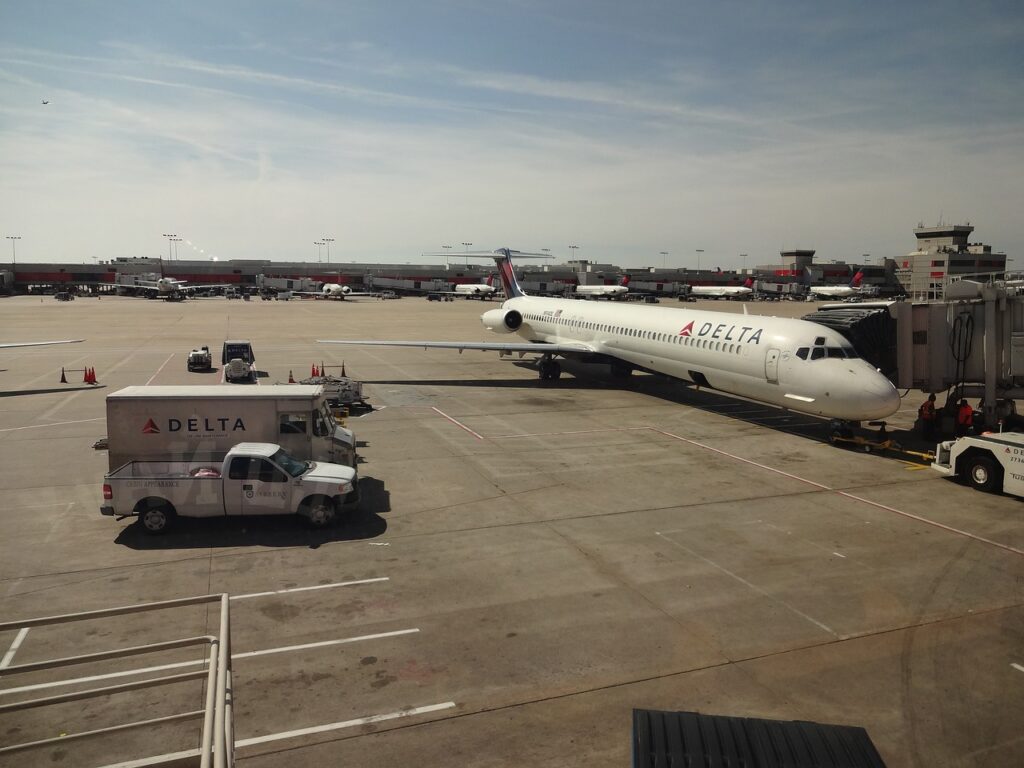Delta Air Lines rolls out AI for personalised airfare
Delta states no individual targeting, calling AI a streamlining of existing dynamic pricing.

Delta Air Lines is shifting the landscape of airfare by leveraging AI to personalise ticket prices. Moving beyond fixed fares, Delta aims to tailor prices closely to each traveller.
Instead of static prices, the system now analyses customer habits, booking history, and even the time of day to predict an individual’s potential willingness to pay. By the end of the current year, Delta aims to set 20% of its ticket prices using AI dynamically.
The goal represents a significant, sevenfold increase from just twelve months prior. Such a high-tech approach could result in more advantageous deals or elevated costs, depending on a passenger’s unique circumstances and shopping behaviour.
It is crucial to understand how this system operates, Delta’s motivations, and its implications for consumer finances. Traditional ticket pricing has long relied on ‘fare buckets,’ where customers are categorised based on their booking method and timing.
Delta’s new AI ticket pricing system fundamentally shifts away from these static rates. It analyses real-time information to calculate precisely what a specific customer will likely spend on a seat for any given flight.
Glen Hauenstein, Delta’s President, describes this as a complete re-engineering of pricing. He characterises AI as a ‘super analyst’ working continuously, 24/7, to identify the optimal price for every traveller, every time.
The airline has collaborated with Fetcherr, which provides the underlying technological infrastructure and supports other global airlines. Airlines do not adopt advanced, high-tech pricing systems to reduce revenue.
Delta reports that initial results from its AI-driven pricing indicate ‘amazingly favourable’ revenues. The airline believes AI will maximise profits by more accurately aligning fares with each passenger’s willingness to pay.
However, this is determined by a vast array of data inputs, ranging from individual booking history to prevailing market trends. Delta’s core strategy is straightforward: to offer a price available for a specific flight, at a particular time, to you, the individual consumer.
Consumers who have previously observed frequent fluctuations in airfare should now anticipate even greater volatility. Delta’s new system could present a different price to one person compared to another for the same seat, with the calculation performed in real-time by the AI.
Passengers might receive special offers or early discounts if the AI identifies a need to fill seats quickly. However, discerning whether one is securing a ‘fair’ deal becomes significantly more challenging. The displayed price is now a function of what the AI believes an individual will pay, rather than a universal rate applicable to all.
The shift has prompted concerns among some privacy advocates. They worry that such personalised pricing could disadvantage customers who lack the resources or time to search extensively for the most favourable deals.
Consequently, those less able to shop around may be charged the highest prices. Delta has been approached for comment, and a spokesperson stated: ‘There is no fare product Delta has ever used, is testing, or plans to use that targets customers with individualised offers based on personal information or otherwise.
Various market forces have driven the dynamic pricing model used in the global industry for decades, with new tech streamlining this process. Delta always complies with regulations around pricing and disclosures.’
Delta’s openness regarding this significant policy change has attracted considerable national attention. Other airlines are already trialling their AI fare systems, and industry experts widely anticipate that the rest of the sector will soon follow suit.
Nevertheless, privacy advocates and several lawmakers are vocalising strong objections. Critics contend that allowing AI to determine pricing behind the scenes is akin to airlines ‘hacking our brains’ to ascertain the maximum price a customer will accept, as described by Consumer Watchdog.
The legal ramifications of this approach are still unfolding. While price variation based on demand or timing is not novel, the use of AI for ultra-personalised pricing raises uncomfortable questions about potential discrimination and fairness, particularly given prior research suggesting that economically disadvantaged customers frequently receive less favourable deals.
Delta’s AI pricing system personalises every airfare, making each search and price specific to the user. Universal ticket prices are fading as AI analyses booking habits and market conditions. This technology can quickly offer special deals to fill seats or raise prices if demand is detected.
Conversely, the price can increase if the system senses a greater willingness to pay. Shopping around is now an absolute necessity. Utilising a VPN can help outsmart the system by masking location and IP address, which prevents airlines from tracking searches and adjusting prices based on geographic region.
Making quick decisions might result in savings, but procrastination could lead to a price increase. Privacy is paramount; the airline gains insights into a user’s habits with every search. A digital footprint directly influences fares. In essence, consumers now possess both increased power and greater responsibility.
Being astute, flexible, and constantly comparing before purchasing is vital. Delta’s transition to AI-driven ticket pricing significantly shifts how consumers purchase flight tickets.
While offering potential for enhanced flexibility and efficiency, it simultaneously raises substantial questions concerning fairness, privacy, and transparency.
Would you like to learn more about AI, tech, and digital diplomacy? If so, ask our Diplo chatbot!
